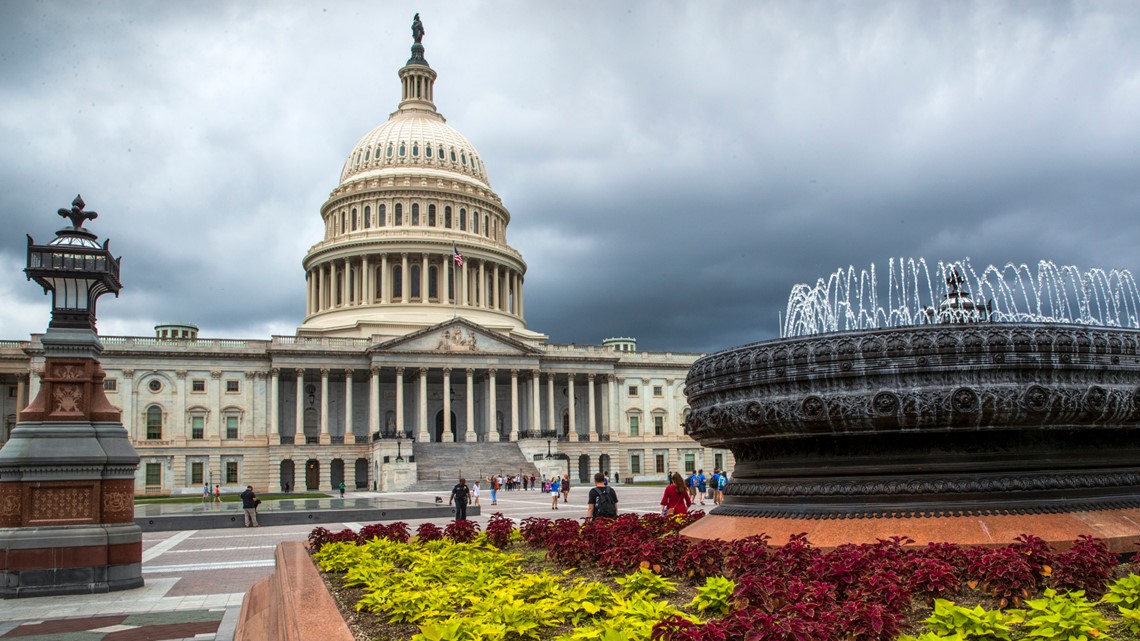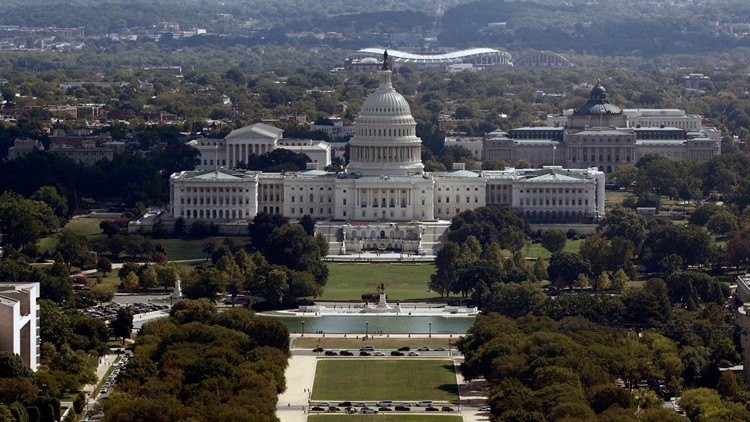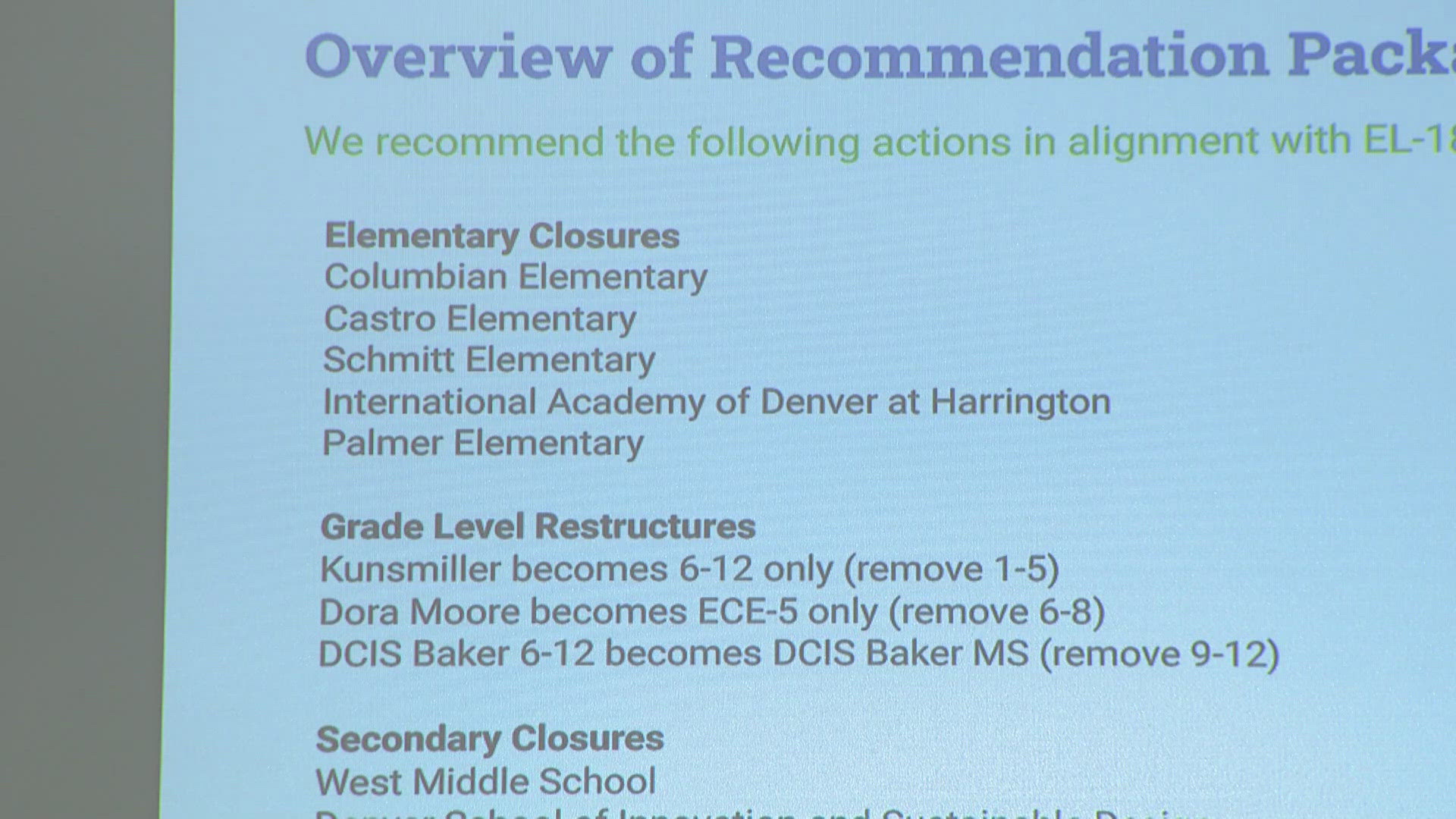Control of the House and Senate will be decided along with the White House in 50 days. That's when the absentee, mail-in and in-person votes will start to be counted.
Election forecasters who painstakingly look over polling and other data are making their predictions for which seats are safe and which are in danger of changing party.
Independent forecasters say there is little risk Democrats will lose the House and it is looking likely they will gain seats in that chamber. The Senate could go to either party at this point, but forecasts show more Republican seats than Democratic ones are in play.
Republicans currently have 198 seats to the Democrats' 232 in the House. For the GOP to take control, it needs a net gain of 20 seats.
Democrats have 45 seats in the Senate, but two independent senators caucus with them -- so consider that 47. Republicans have 53. Democrats need a net gain of four seats.
Here is a brief look at 10 of the seats that appear to be most at risk of changing parties. It is based on a compilation of election forecasts by the Cook Political Report, RealClearPolitics, University of Virginia political scientist Larry Sabato, and the non-partisan Inside Elections. The methodology is explained at the bottom of this article.
Senate
Alabama
Sen. Doug Jones (D-Incumbent) vs. Tommy Tuberville (R)
Jones shocked the nation when he was the first Democrat in 26 years to win a U.S. Senate race in deep-red Alabama. He won a 2018 special election to finish out the term vacated by Jeff Sessions, who became Attorney General. But now Jones is facing Tuberville, who is endorsed by President Donald Trump. All four forecasters list this as "lean" or "likely" Republican.
Arizona
Sen. Martha McSally (R-Incumbent) vs. Mark Kelly (D)
This is a special election to determine who will fill out the remainder of the term of the late Sen. John McCain, which runs through 2022. After McSally lost her race in 2018 for Arizona's other Senate seat, she was appointed to this one. Now she faces Kelly, a former astronaut and the husband of former Rep. Gabrielle Giffords, who was shot while meeting with constituents in 2011.
All four forecasts are giving Kelly the edge and multiple polls have Kelly ahead by more than the margin of error.
Colorado
Sen. Cory Gardner (R-Incumbent) vs. John Hickenlooper (D)
Gardner is trying to hold onto his seat against Hickenlooper, the former governor of Colorado who had a brief run for the Democratic presidential nomination. Most of the forecasts are giving Hickenlooper the advantage.
Maine
Sen. Susan Collins (R-Incumbent) vs. Sara Gideon (D)
To give a sense of how tough a battle this will be for Collins, a poll by Public Policy Polling released on July 6 had her four points behind Gideon. That was still nine days before Gideon even won the nomination. Two months later, the polls remain tight and all four forecasts rate this a toss-up.
North Carolina
Sen. Thom Tillis (R-Incumbent) vs. Cal Cunningham (D)
Tillis is trailing Cunningham in polling by as much as 10 points in one recent poll, but by less in others. This is rated a toss-up by all four forecasters.
House
Georgia 7th District
Carolyn Bourdeaux (D) vs. Rich McCormick (R)
Incumbent Rep. Rob Woodall, a Republican, is not seeking re-election following 10 years in office. Three of the four forecasts list this as a "tilt" or "lean" Democrat.
Michigan 3rd District
Hillary Scholten (D) vs. Peter Meijer (R)
This one is guaranteed to switch hands. Incumbent Rep. Justin Amash, a former Republican who switched to Libertarian in 2019, is not running. He left the GOP after declaring President Donald Trump should be impeached due to the findings by former Special Counsel Robert Mueller. Most of the forecasts have this seat leaning Republican.
North Carolina
2nd District
Deborah Ross (D) vs. Alan Swain (R)
Incumbent Rep. George Holding (R) is not seeking re-election.
6th District
Joseph Lee Haywood (R) vs. Kathy Manning (D)
Incumbent Rep. Mark Walker (R) is not seeking re-election.
These two Republican districts have a new look after North Carolina was ordered by a court to redraw its district maps due to partisan gerrymandering. As the Washington Post described, "The 6th will pool Democrats previously divided among three Republican districts around Greensboro. The new 2nd has been carved out of a Democratic stronghold in Raleigh." Both of these seats are listed as "likely" or "safe" Democrat.
Texas 23rd District
Gina Ortiz Jones (D) vs. Tony Gonzales (R)
This is the seat held by Republican incumbent Rep. Will Hurd, but he is not running for re-election. What makes Hurd's departure noteworthy is that he is the lone Black Republican in the House. Three of the forecasts have this seat as a "lean" Democrat while the other rates it a toss-up.
Worth watching
The Senate race in South Carolina with incumbent Republican Lindsey Graham against Democrat Jaime Harrison is worth watching. While two forecasts list this a likely win for Graham, one forecast only has this as a "lean" Republican and another rates it a toss-up.
In Georgia, incumbent Republican Sen. Kelly Loeffler is trying to hold her seat in a special election. She was appointed to take over for former Sen. Johnny Isakson, who retired citing health concerns. This election will be to fill the final two years of that term. But, it's a free-for-all. Loeffler will face 20 challengers from five different parties, including fellow Republican Rep. Doug Collins. If nobody gets a majority of the vote, the top two vote-getters -- regardless of party -- will advance to a runoff election January 5.
Methodology: Each one of the four forecasts used in this article rate each race on a scale ranging from "safe" or "solid" Democrat to "toss up" to "safe" or "solid" Republican. Seats currently held by one party, but have multiple forecasters indicating the other party is more likely to win in November, are deemed to be most at risk of switching parties. For example, if a Democrat holds a seat but all the forecasts have it as a toss-up or leaning Republican, that would be a seat in danger of flipping.





